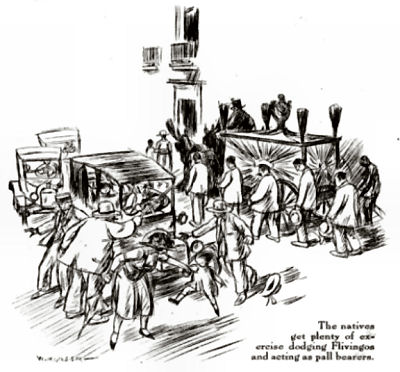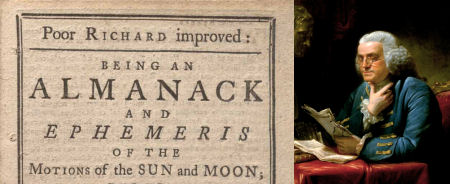Humphrey Bogart? George Bernard Shaw? W. Somerset Maugham? Apocryphal?
Question for Quote Investigator: Before Humphrey Bogart played iconic tough and sophisticated characters he appeared in drawing room comedies on Broadway. Supposedly in his first scene as a young actor he came striding onto the stage swinging a racquet and saying:
Tennis anyone?
Later this line became a cliché that was parodied by comedians. But recently I read that Bogart never said it. Could you explore this topic?
Reply from Quote Investigator: For years researchers have attempted to uncover evidence that Bogart spoke this piece of dialogue in a stage production. Some theater goers indicated that they heard Bogart deliver the line, but this type of testimony is not reliable. In multiple interviews Bogart denied that he said it.
But QI has found a 1948 interview with him in the syndicated newspaper column of Hollywood gossip Erskine Johnson that helps to explain the existence of this assertion. Bogart himself stated that he used a nearly identical line “Tennis anybody?” earlier in his career:1
Bogart laughed. “I used to play juveniles on Broadway and came bouncing into drawing rooms with a tennis racket under my arm and the line: “Tennis anybody?” It was a stage trick to get some of the characters off the set so the plot could continue. Now when they want some characters out of the way I come in with a gun and bump ’em off.”
According to the language columnist William Safire the story told by Bogart was somewhat different in 1951. In that year Safire interviewed Bogart for the New York Herald Tribune. The text from a yellowed clipping of the resulting article was reprinted by Safire in the New York Times in 1990:2
”People forget how I used to look on Broadway,” the actor reminisced. ”There would be a crowd of charming and witty young blue bloods gathered in the drawing-room set, having tea, while the hero and the heroine get into a petty squabble. The writer couldn’t think of any other way of getting excess characters off the stage, so the leads could be alone – and that’s where I would appear in the doorway, in my flannels, hair slicked back, sweater knotted jauntily about my neck, four tennis racquets under my arm, breathing hard as I said my line: ‘It’s 40-love out there. Anyone care to come out and watch?’ ”
Safire asked Bogart directly about the disputed line and received a denial:3
”The lines I had were corny enough, but I swear to you, never once did I have to say Tennis, anyone?”
Reconciling these pronouncements from Bogart is possible if one assumes that the phrase “Tennis anybody?” was not supposed to be a literal description of words in a script. Instead, Bogart was giving a representational or generic phrase that his character type was assigned. Nevertheless confusion is understandable.
The expression occurs frequently enough that lexicographers have created an entry for it in the comprehensive Oxford English Dictionary. Two phrasal variations are listed together with a definition:4
anyone for tennis?, who’s for tennis?, etc., a typical entrance or exit line given to a young man in a superficial drawing-room comedy, used attrib. of (someone or something reminiscent of) this kind of comedy.
Here are additional selected citations in chronological order.
Continue reading “Quote Origin: Tennis, Anyone?”
